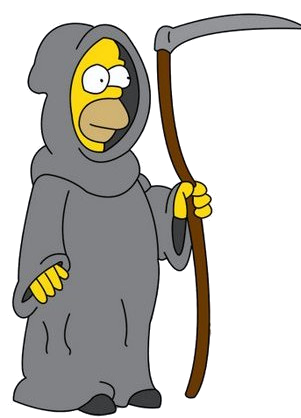A War of the Wraiths After the Death of Wraith

We're going to do two books that happened well into White Wolf's shovelware phase: Orpheus and Geist. Both of them were attempts to revive the “Wraith” line, which went defunct not only before White Wolf did, but before the old World of Darkness did. Wraith got canned in 1999, making it the first main line to be thrown on the ash heap (unless you count the 1991 abortion “World of Darkness: Mummy,” which is a story for another night). There is a certain kind of White Wolf fan that feels that White Wolf can't fail, it can only be failed, and thus getting Wraith back on track has been a goal of a certain splinter faction of highly obsessive goth nerds for a long time. They've come up with many ideas, and all of them have been bad. And we're going to review two of them together. But unfortunately, before we can really talk about how shitty Orpheus and Geist were, we're going to have to say a few things about Wraith: The Oblivion. Because if there wasn't the big scythe of Wraith hovering over peoples' heads, neither of these games would have been printed.
Orpheus was made in 2003 as one of the last projects before they canned the old World of Darkness. Geist was made in 2009 and is one of the last books that actually got printed. I guess what I'm saying is that Wraith has been something of a bad omen for White Wolf, and the various attempts to reboot it have been harbingers of doom.
Wraith actually got off kind of lucky. It was the first game line to officially end with Ends of Empire in 1999, and from this perspective got off kind of lucky, because I think we can all agree that Time of Judgment sucks salty monkey scrotum and it thus avoided actually being officially reincarnated as one of the crappy nWoD games. Well, okay you can make an argument that Geist is supposed to be Wraith with a Vengeance, but I'll fight you on that and win.

Seriously, at least Wraith ended in such a way that you could still plausibly keep playing Wraith. It was the end of the game, not the game world.
Wraith was also fairly important in the old World of Darkness cosmology because pretty much everything dies. Vampires, werewolves, mummies, fae, sorcerers, Eastern vampires, African vampires, ghouls, mages, kinfolk, mediums, White Wolf...

Now, a lot of these guys come back in one form or another, and a couple tend to give the afterlife a general pass, but the whole afterlife is a really big and cohesive part of the oWoD cosmology. Pretty much every flavor of supernatural died and passed through there at some point, and most of them had some version of necromancy, so whether or not any of them ever used the Wraith books, they were at least moderately supposed to be relevant. Hell, you could actually theoretically have your character die and come back as a wraith and keep on playing! Granted, that didn't happen much in my experience, but it's a hell of a lot more interesting than "We shall all miss Ragnar O'Kittensquasher IV. All hail our new friend, Ragnar O'Kittensquasher V!" and its endless variations.

I would be remiss not to mention that when official uber-munchkin Samuel Haight finally fucking died, he became a wraith. And was promptly forged into a tasteful soulsteel ashtray to scream for all eternity. This was a better send-off than any of the Antediluvians got, and was well-received by all.
I think it was K who described Wraith as “The best game you didn't want to play.” I think that might be overly generous. I mean, you don't really want to play RIFTS or Tales From the Floating Vagabond either. But I definitely know what he's talking about. Wraith was the game that was too White Wolf for White Wolf. All the other game lines might talk about how doomed you were and how you were degenerating into bestial madness, but when it came down to it you were basically superheroes with fangs. Or in the case of Mage: just super. Thanks for asking.
Not so in Wraith. Wraith didn't ask you to roleplay being horrified at how much badassery you'd been cursed with, Wraith gave you a Shadow. And your shadow was your dark and self destructive side, and another player got to play it. So your dark nature actually made you do things you didn't want to do. Like, all the time. And players were actually competing to piss each other off and do hateful and disturbing things to each other. It was a fucking trainwreck! But unlike all the other games, it actually did deliver on being a deeply disturbing and unpleasant experience. A masterpiece of design in a way, although the fact that people didn't actually want to play that game should have been all the proof anyone needed that the whole “Woe is me!” shtick from the TruRoleplayer faction of White Wolf fandom was full of so much shit. Wraith was made after White Wolf had decided to put out a “main book line” every year. And when sales figures came back from it, they decided to stop doing that.
If those sales figures had gotten back in time to stop Changeling from happening, we could have been spared so much pain.
So really, we can probably blame Wraith: the Oblivion for there not being a Frankenstein book for old World of Darkness. Not that Promethean was worth the wait when it finally came out.
There's a guy named Dave that owns the Fantasy Shop comics-and-games chain around St. Louis, and he hated the Wraith books with the glow-in-the-dark covers.
"Oh hey, someone's going to break into the shop after hours and steal shit. Let's make sure they can see the stuff they're ripping off!"
Anyway. The thing about Wraith is that even though the game officially stopped production, the game world continued on in the other World of Darkness settings - characters still died, and they went to the Wraith setting. Necromancers continued to exist. So while you might not get a bunch of post-Wraith books telling you to go buy an out-of-print product to figure out what the fuck was going on with Wraiths and their crazy powers and politics, you did have a bunch of books that continued to reference the underworld and wraiths as they had existed in W:tO. Basically, the death of Wraith left a sort of Wraith-shaped hole in the game universe, and because nature abhors a vacuum, that had to be filled. Hopefully without ripping the skin off anyone's dick this time.

Geist and Orpheus are long.

Orpheus comes in at 309 pages. Geist is “only” 303, but it feels longer because the type is denser. There are actually a lot more words in Geist than Orpheus. But the point is that these are two books that could individually be used as murder weapons. And not just by the expedient of having people read them. (burn!)
But to give you an idea of what we're up against, Orpheus has twelve credited authors (well, eleven authors and one “additional writing” who is also the developer), and five credited playtesters. One of the authors is one of the five credited playtesters, so I think that literally that's that one of the twelve people writing this book actually decided to try to play it and the four friends he tried to inflict it on got their names in the book. Also, the project lead is credited as “Lucien Soulban.” That sounds like a joke, but he's from Saudi Arabia and I think it's a happy coincidence. Learning absolutely nothing from the “too many cooks” problems that plagued Orpheus, Geist has a dozen people on “Initial Concept and Design” and then has a dozen people on “Written By.” Exactly one person is on both lists, bringing the number of designers and authors to twenty three. Trivia fact: the guy who wrote and bothered to playtest Orpheus is also one of the writers on Geist. But despite having written an ostensibly similar game six years earlier, he doesn't get any credit for “initial concept” for Geist. Sad face!
I've reviewed some of Lucian Soulban's work before[/i].
Orpheus was a concept game, which is sort of like a limited series in comics terms. It wasn't meant to be an ongoing gameline, at least as far as I can tell, they just wanted to come out with X number of books and one adventure arc and thus give gamers a sort of light at the end of the fucking tunnel.
Geist...eh...it was as ongoing a game as any of the non-major nWoD games, which is to say that they were checking the sales numbers with each release, hands over the big shiny red kill switch.
They just keep coming back. I'm waiting for Wraith Classic.
I kind of think that after White Wolf went under, while CCP was keeping the publishing imprint around, people were just loading everyone's name into the credits they could possibly justify and some they couldn't. Certainly by 2009 it was obvious that the company was not coming back and that many of the books weren't ever going to be distributed. So really, using this shit for resume padding probably makes sense. You can't have 23 people meaningfully contribute to the writing of a game book, even one as long winded and rambling as Geist. But you can have twenty three people put this book on their resume when they go off looking for writing gigs at other companies. There are a veritable fucktonne of people who “playtested” Geist, and no less than two people listed as having designed the cover. I think we should probably show the cover again just to have it sink in how patently absurd that is:
Robert Dixon is credited with “keys,” so I'm guessing that Craig Grant chose the shade of black.
That being said, Orpheus is actually still in the oWoD mindset and thus far less pretentious than Geist. That doesn't sound like much, but it counts for a lot. Unfortunately, this was long after White Wolf had lost their collective sense of humor.

Not yet.
Orpheus begins like a respectable book with a credits page and a table of contents. The first chapter is called “Prologue” and the second chapter is called “Introduction” and the third chapter is called “Chapter One.”
The other two fell over and sank into the swamp.
Geist is too pretentious for that, and does the nWoD standard thing of pissing everyone off putting the opening fiction before the table of fucking contents so you have to flip through it every fucking time to find out what pages the chapters start on.
Those are seriously the opening words to Geist.Rum is the Drink the Dead Like Best.
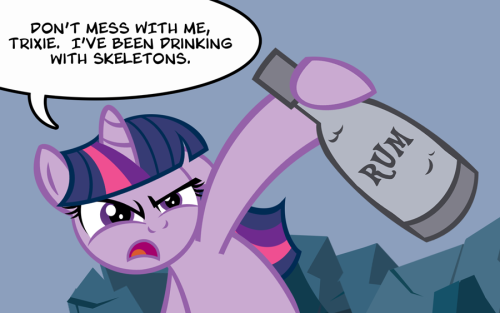
Orpheus pages are mostly white with black text, with a heavy border and some watermarking, but at least you can read it. Geist went for this fucking amorphous blue shit with white letters that all have 1998-style "glow" feature on them, so they're fuzzy and fade together at the edges. I wear glass, goddamnit. I cannot deal with this shit without getting a headache.

See that top line? Put that on a shifting-blue background.
What it is of course is ectoplasm. Traditionally, ectoplasm was some shit that mediums would fake out of seaweed and flour and mucous and whatnot.

No, really.
But at some point, movies like Poltergeist and Ghostbusters decided a sort of ephemeral mist-like thing would do better, probably because it looked less like ass when they were filming on a budget.

Okay, who hired Mignola to do the anti-drug PSA?
At ten pages, the opening fiction in Orpheus isn't terribly long. It is, however, kind of a giant what-the-fuck. See, when someone hands you a book called “Vampire: the Masquerade” you kind of know what the fuck is going on from the start, and you can excuse the introduction for rather talking around the point to “build mood” or whatever the fuck. But when the book is called “Orpheus: Don't Look Back” that is rather less explicable. So the fact that the intro fiction doesn't get down to brass tacks and tell you what the fuck is going on is rather less excusable. Flipping to the back of the book, you get the following blurb:
Not terrible as hooks go, but it doesn't really explain what the fuck is going on. Apparently we have techno-necromancy or something. Are we doing Flatliners or Final Destination? This being White Wolf, we can assume the answer is “yes.” But that's really not explicit.What if death wasn't the end? What if you could die and return to your body, to live again? What if you could remain among the living long after your body crumbled to dust? What if science had rendered death a mere inconvenience?
The door between this world and the next has been thrown open. He souls of the deceased haven't passed, they're among us, and now the living walk among the dead. Mankind has learned to look into the void of the afterlife... but does it stare back?
If death is no longer an absolute, what is?
Some laws should never be broken.
Anyway, the story starts out with characters in an office talking about how they work for the “Orpheus Corporation” and are being paid obscene amounts of money to do what sounds like ordinary private detective bullshit. A page or two in, you really feel like you know less about what this book is about than when you read the back cover and made assumptions. Even the name “Proof of Life” is so generic that it conveys no information to the reader.
Orpheus was a bait-and-hook for the Wraith crowd, because there were things in Wraith like the Orphic Circle (a circle jerk of supernatural necromancers of every stripe), and this was the tantalizing hint of tying back into Wraith without ever fucking coming out and saying it. Believe it or not, oWoD used to pull this shit all the time. The whole thing with the Cappodacians and the Giovanni and the Samedi and the Harbingers of Skulls was one long-drawn-out mindfuck which only ever seemed to progress by accident...but then, it was still better than Ghostwalk.
The prologue story in Geist is only four pages, but it sure feels way longer than that. Partly it's because I have a pdf copy and this section loads extremely slowly. It's white text over a blue and white background with fake page breaks in the middle of pages. And the encoding is done very very badly, and the shadows of the letters load before the letters do. Ugh. It's awful.
But while it's hard to actually read this fucking thing, it does at least get you to the point in a hurry. The name of the section is “Rum is the Drink the Dead Like Best” which right away makes you think we're talking about a game about Voodoo necromancy. Then the first mini-segment is a description of a voodoo mass murder complete with salt water and blood and flies shooting out of peoples' noses. So that at least tells you what the book is about. That's better than most White Wolf products can manage.
Geist is another bait-and-switch, but in a different way. In Wraith: the Oblivion you're already dead and a wraith (unless you got the Mediums supplement, where I guess you can play a medium). In Orpheus, you're a human that interacts with the dead, but not using any of the old medium abilities because that would be cheating make sense. In Geist, you're a living human being inhabited by a ghost.
Yeah, you read me, and yeah, this is explicitly the exact same bullshit that went into Mummy: the Resurrection and Demon: the Fallen and Hunter: the Reckoning and probably several other crappy White Wolf games that I'd forgotten about. Normal human being gets supernatural element bonded to their soul, and now life sucks that little bit more.
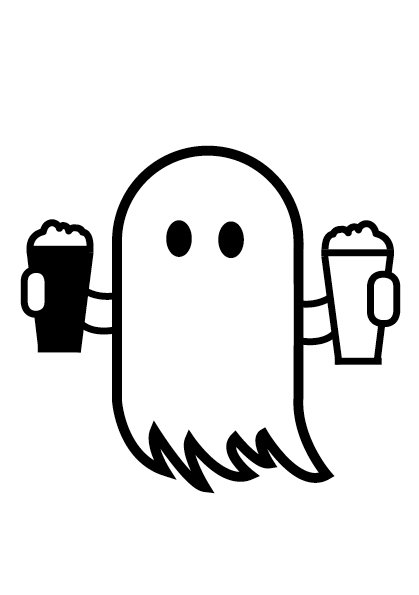
Drink up, we have a long way to go.
The Orpheus corporation apparently has a nemesis who is named “The Bishop” and he's super bad ass, and people are supposed to care about him or something? It doesn't make a lot of sense. The Orpheus agents seem to be amoral and harassing people with some sort of body jumping technology at the behest of rich people. I don't actually understand why they are supposed to care that there's some bad dude out there doing bad things. It all sort of runs together, where the story can't decide if it's doing an intelligence agency story or what. Basically, the characters appear to be shadowrunners for hire in a big corporation. Like Dollhouse, and like Dollhouse, it really isn't that good.
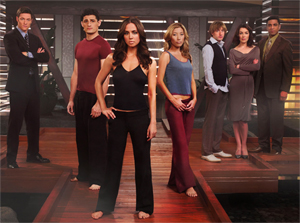
Not even a low cut shirt could stop that show from having a shitty premise.
So anyway: there's a corporation and they have super science that puts people into cryo-freeze so that they can send their spirits out and spy on people or haunt them. That's... really weird. Not at all obvious how you'd tie that in with anything else in the world of darkness, but I'm guessing you weren't really supposed to. You get to play the bad guys from Quantum Leap only without the time travel. And there are badder guys who are ghosts on purpose and I don't actually know why I'm supposed to give a fuck.
One of the up-or-downsides of Orpheus is that despite teasing itself as a Wraith spin-off/spiritual sequel, it wasn't strongly connected to the rest of the WoF. This is probably because making it a Pentex subsidiary would have hypothetically fucked with Werewolf's endgame, and the Technomancy rules for necromancy are actually so remarkably straight forward you wouldn't need any of this "I stole this plot device from the Frighteners" bullshit.
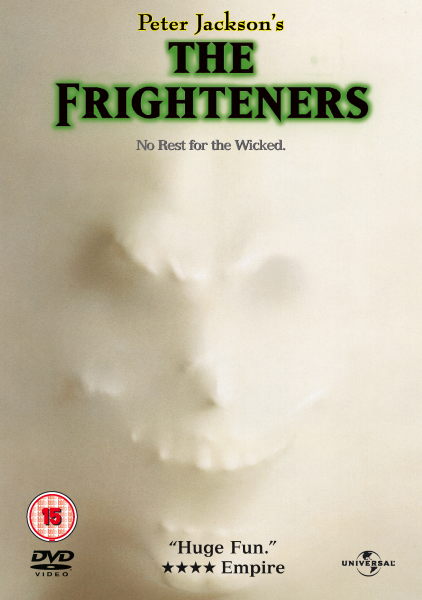
Seriously, if someone told me Orpheus had started out as a Frighteners RPG, I'd believe them.
I mentioned before that Geist suffers a bit from being nWoD, and I'd like to explain that: oWoD had a fairly elaborate (if fairly nonsensical) map of the underworld. You had the Veil between the physical realm and the Shadowlands, which was sort of the ghostly counterpart to the real world, and then you could go off into a bunch of individual culturally-appropriate (and more than vaguely racist) afterlives like the Dark Empire of Steel or the Dark Empire of Flint or the Ivory Kingdoms/Bush of Ghosts, which were separated by perpetual storms, and then somewhere past that you had some really weird Far Realms which were like self-made heavens and hells, and all of that was just a giant fucking whirlpool surrounding the infinite abyss that was hell.
New World of Darkness...not so much. There's an underworld, yes, but it's at once sadly more coherent and less fleshed out, and appears more to be based on Exalted than the oWoD version. Also, and I want to stress this, all of the gamelines pretty much only use the generic underworld in nWoD if and when they want to; most of them appear to fucking ignore it. To the extant that of the 5+ necromantic disciplines available to various vampire bloodlines, I'm pretty sure only 1 ever actually mentions any aspect of the geography of the underworld as used by, say, Mage: the Awakening.
So right the fuck away you're at a bit of a downside for both games in terms of interacting with the larger world. I mean, theoretically you as an Orpheus employee can go peek in on the vampire's crypt or something. But in Geist if run across a vampire necromancer, but none of you are going to be playing by the same ruleset when it comes to interacting with ghosts, and not even share much of the same language when it comes to talking about the things you're trying to do, and that's just poor game design right there. For example, can a Dragolescu vampire with Essentiaphagia eat a fucking geist? No clue! You're a bad person even for asking.

Also, Wraith had style.
There are a bunch of vignettes in the opening fiction of Geist. People die in various magical ways. Something something about keeping ghosts out, which is important for some reason. Kind of incoherent, but sets the tone and explains the what the fuck way better than Orpheus. Not that this is a high bar.
I'm going to give the designers of both books their props here: while neither book has the iconic look and design of Wraith: the Oblivion, both of them are actually solid efforts once we get past the glowy font phase in Geist. Also while both books are way fucking long - arguably way fucking longer than they should be - the approach that both take is actually reasonably straightforward and concise. We bitched about Lunars because of the low information density, shoddy design and layout, and many other sins besides, but at the points these were made White Wolf basically had a step-by-step guide to creating workable shelfbreaker main game books, and it shows. Ostensibly both books only have 4-5 chapters with no-nonsense titles like "Character Creation," "Systems," and "Storytelling" being the meat of the book, and appendices and introductions and prefaces and shit are just there to fluff the page count.
Of course, at this point you might well ask yourself why Character Creation, Systems, and Storytelling are their own fucking chapters, since these are all World of Darkness games, and that gets into a very high-level aspect of game design. See, GURPS is the kind of game where you all buy the main GURPS book and then you buy additional books with more rules to add onto it as needed; White Wolf sortof-kindof acknowledges that approach, but when it comes to their "core" game books they always like each one to be able to stand alone. On the good side, that means you could pick up Wraith: the Oblivion or Orpheus: the Necrophiliacs or Geist-hard with Vengeance (wait, did I do that joke already?) and never have to worry about another fucking White Wolf product for as long as you may live.
On the bad side, that means every single fucking game has separate mechanics and unique subsystems, and these can quickly or slowly drift out of phase until eventually you've got a bunch of game ostensibly based on the same system with skills that overlap and rules that disagree and other rules that just can't fucking relate. oWoD got around this by various tie-together products so that Eastern Vampires treated Western Vampire blood points as yin chi and crap like that, but nWoD made the command decision in the beginning that they were not going to be having all of that, which is why you can get into some serious arguments over what the fuck constitutes a "Wasteland" in your nWoD game and...and...well, it annoys me on the obsessive completionist level, because part of the "fun" of oWoD was trying to figure out how the pieces went together, and in nWoD they couldn't even be fucked to decide what shape the pieces were, much less the picture.
Man, and this started life as a compliment about the layout looking better than some other games at the time.

In White Wolf, nudity in art was okay if it was on a corpse. True story.






